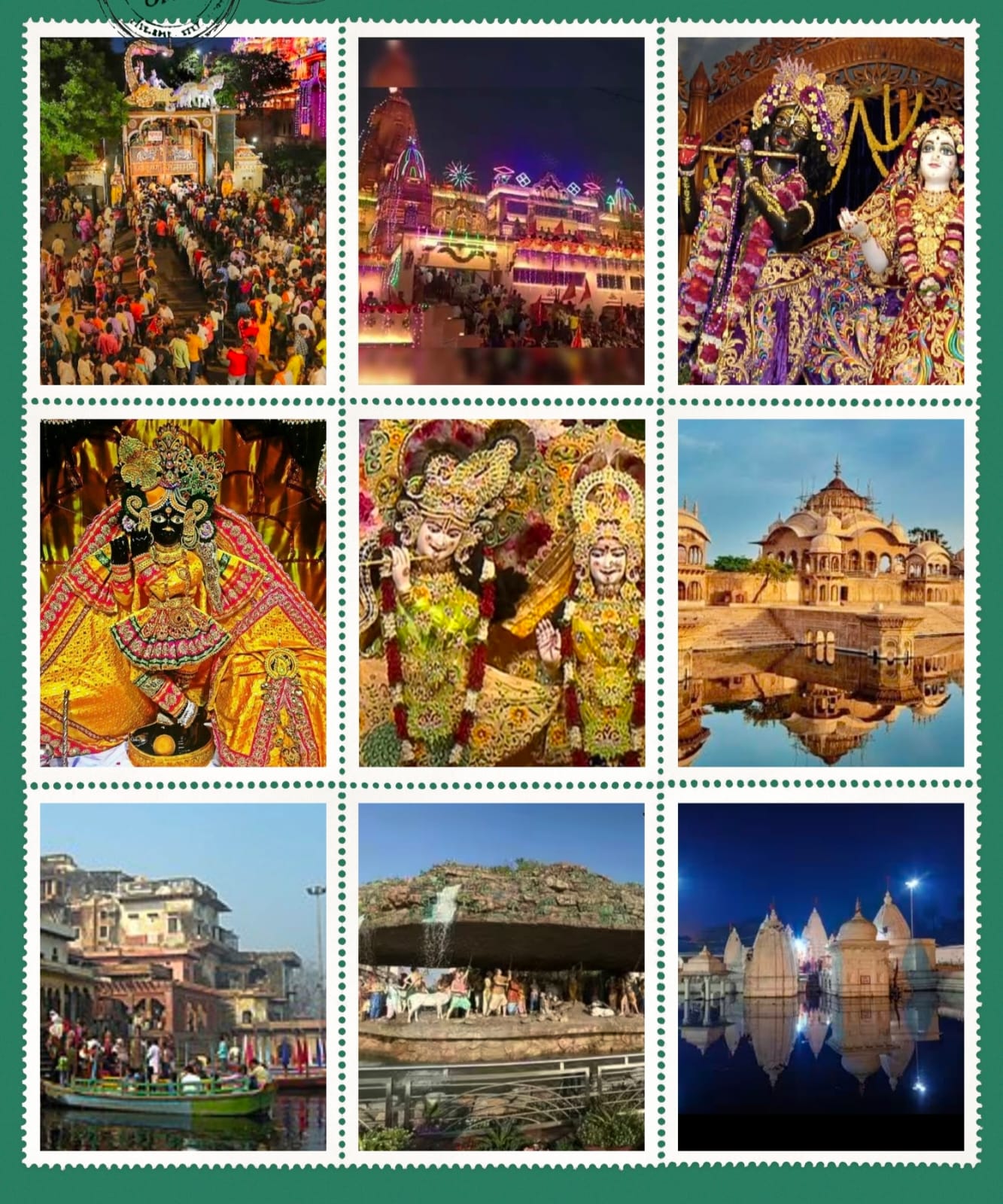
Mathura, located in the northern region of India, is a city deeply entrenched in religious significance and historical heritage. It is renowned as the birthplace of Lord Krishna, one of the most revered deities in Hinduism. This ancient city has a rich cultural tapestry woven with stories from the Mahabharata era and is dotted with various sacred sites associated with Lord Krishna.
**Historical Significance:**
During ancient times, Mathura served as the capital of the Surasena Kingdom, ruled by Krishna's maternal uncle. Alongside Mathura, other places like Gokul, Barsana, and Govardhan are closely connected to Lord Krishna's life. After his birth in Mathura, Krishna was taken to Gokul, where he spent his early years. Barsana is known for being the home of Radha, Krishna's beloved, and is famous for its exuberant Lathmar Holi festival. Govardhan is where Lord Krishna lifted the Govardhan Hill on his little finger to protect the villagers from torrential rains and the wrath of Lord Indra.
**Krishna Janmabhoomi:**
The city's most iconic site is the Krishna Janmabhoomi, where Lord Krishna is believed to have been born. The ancient Kesava Deva Temple, now known as the Krishna Janmasthan Temple, marks this hallowed spot. Here, you can find the sacred birthplace, the viewing hall, Kesava Deva Temple, Bhagavat Bhavan, and the Vaishnav Devi Cave, all offering a glimpse into the divine life of Lord Krishna. The birthplace, where Krishna was born, is preserved beneath a marble slab, visible through a barrier.
**Religious Essence:**
Mathura is not only about the Krishna Janmabhoomi; it is also home to numerous other temples and ghats that add to its religious aura. The Yamuna River's banks boast 25 holy ghats, where evening aartis are a sight to behold. Prominent temples in Mathura include Prem Mandir, Vrindavan, Radha Govind Dev Ji Temple, Radha Madan Mohan Temple, Radha Damodar Temple, Radha Gopinath Temple, Banke Bihari Temple, Krishna Balaram Temple, Rangaji Temple, Radha Vallabh Temple, Nidhivan, and Seva Kunj.
**Exploring Beyond Mathura:**
Mathura's spiritual influence extends beyond its boundaries, with places like Gokul, Mahavan, Baldev, Barsana, and Nandgaon holding historical and religious significance. Vrindavan, located about 12 kilometers from Mathura, is a haven for pilgrims and tourists alike, offering a spiritual journey with numerous temples and a vibrant atmosphere. The 24-kos Parikrama around Vrindavan is considered auspicious and takes you to several significant temples.
**Mathura Museum:**
The Mathura Museum houses an impressive collection of artifacts from various historical periods, especially sculptures. Notable exhibits include sculptures from the Shaka, Kushan, Hun, and Mauryan periods. The museum is a treasure trove of Buddhist and Jain sculptures, idols of Yakshas and Yakshis, coins, jewelry, and more. Many artifacts from this museum have been showcased in museums across India and abroad, testifying to the richness of Mathura's art and culture.
**Visiting the Museum:**
The Mathura Museum, situated around 2.5 kilometers from Mathura Railway Station and approximately 1.5 kilometers from the new bus stand, is a must-visit for history and archaeology enthusiasts. It beautifully captures the essence of Mathura's art and culture throughout the ages.
In conclusion, Mathura's historical and religious significance makes it a must-visit destination for those interested in India's rich cultural heritage and spirituality. It is a city where the ancient and divine coexist, immersing visitors in a unique and profound experience. Whether you are a religious pilgrim or a history enthusiast, Mathura offers something extraordinary to all its visitors.